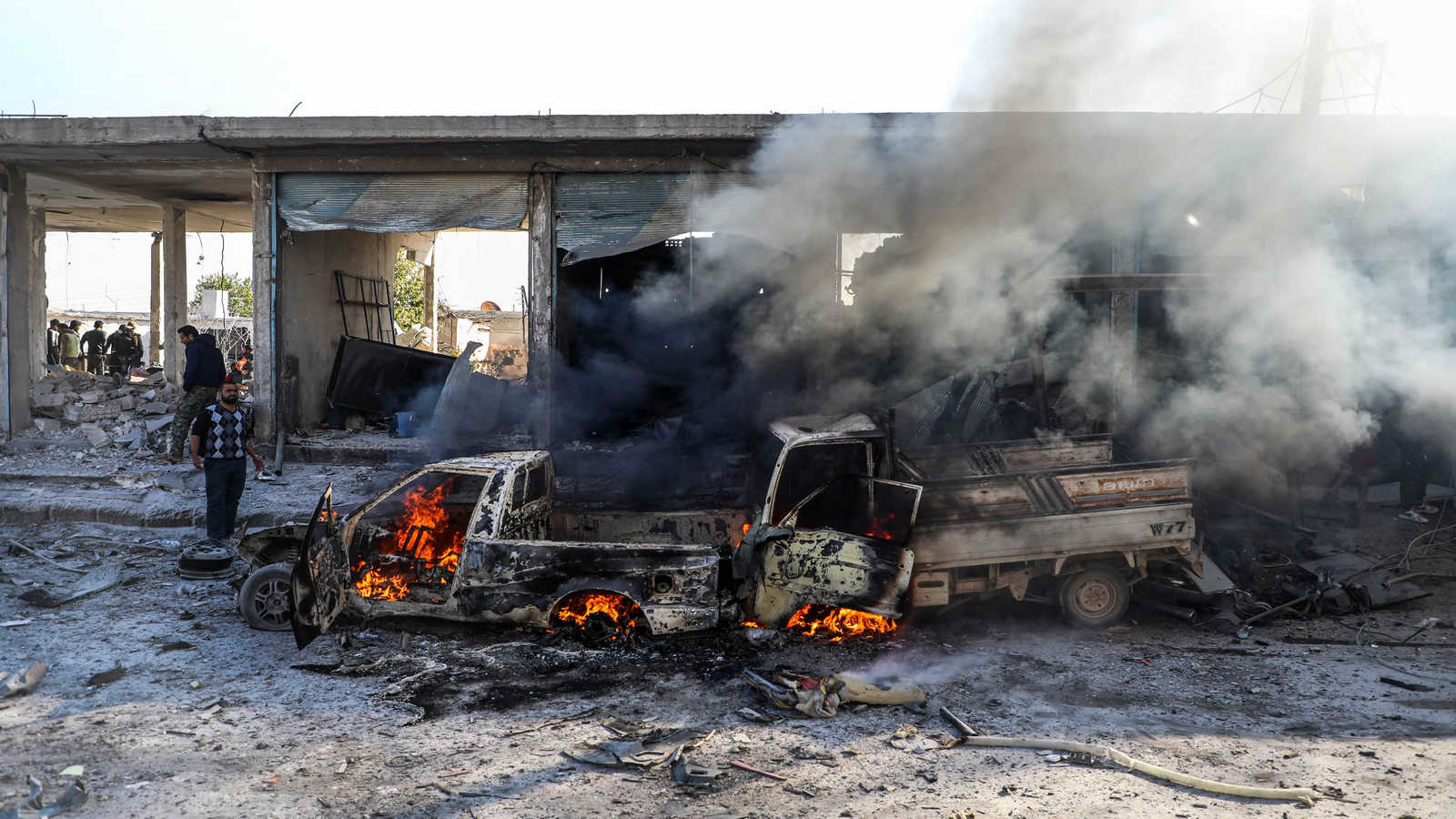The Syrian armed opposition factions are accusing the Kurdish-led Syrian Democratic Forces of planting explosive devices in fuel-laden trucks along the border with the opposition areas to prevent smuggling of fuel.
The areas under the control of the Syrian opposition in north Syria are facing a fuel crisis as a result of the frequent rise in fuel prices, which has led to an influx of oil smuggled from areas controlled by the Kurdish-led Syrian Democratic Forces (SDF). After explosive devices targeted the routes commonly used for smuggling, the opposition has pointed the finger at the SDF, which it says is doing this as a means of cracking down on unauthorized fuel sales.
During this time of the year, there is an increase in demand for diesel, most commonly used for heating.
Two companies are currently competing for fuel supply in the opposition-held areas: the Watad Petrol owned by Hayat Tahrir al-Sham (HTS) in Idlib, and Imdad that is owned by factions affiliated with the Free Syrian Army (FSA) in the countryside of Idlib.
Fuel supplies entering these areas are divided into two groups. First, there is the supplies imported from Turkey, which include gas, petrol and diesel, and enter through the Bab al-Hawa crossing under HTS control in northwest of Idlib. The prices of these fuel supplies are affected by the exchange rate of the dollar against the Turkish lira.
The second group are supplies from the SDF areas in northeastern Syria. Watad Petrol and Imdad compete to import oil from both Turkey and SDF-controlled areas.
Given the long border strip between the FSA-controlled areas and those under SDF control, it is difficult to control the borders through security checkpoints. The opposition has accused the SDF of planting and detonating explosive devices on the roads connecting its areas with the areas held by the FSA and Turkey in the countryside of Raqqa and Hasakah in eastern Syria, presumably as a means of cracking down on oil smuggling.
This is the route that is usually traveled by smugglers to smuggle diesel and gasoline, seeking profits given the difference of prices between the two areas.
A military official in the FSA from Tufaha village in Duraykish who preferred not to be named told Al-Monitor, “Oil coming from the SDF-controlled areas enters through two points. At Tufaha, south of Suluk, under the control of Ahrar al-Sharqiya faction, and at al-Rihaniya, south of Ras al-Ain held by the Hamza Division.”
He said, “The oil-laden vehicles unload their goods into other vehicles that transport oil to the opposition-held areas. There are five other [delivery] points but they are not major, including Sheblia, al-Ramou, Tal al-Janab, al-Salihiya and al-Mudajana. These points are located 2 kilometers [1.2 miles] from one another and are under the control of the opposition forces, which impose fees on vehicles entering and existing.”
The source argued that, in the opposition’s view, the SDF “does not want oil supplies to exit its areas without its knowledge,” given the massive profits the oil trade brings the group.
On Feb. 25, two men were killed when a landmine exploded as they were driving a diesel lorry through a smuggling point near the village of al-Tarwazi on the Aleppo-Hasaka (M4) highway, northeast of Raqqa. The lorry was headed toward the village of Tufaha, near the Turkish border, under the control of the FSA.
The two men’s severely burned bodies were transported to the nearby Omar Alloush Hospital in the town of Ain Issa, northern Raqqa, for identification.
Hassan al-Layli, military commander of the FSA-affiliated Sultan al-Murad Division, told Al-Monitor, “There are no official crossings between the two areas. They can be called passages or corridors connecting SDF-held areas and ours. Civilians and cars pass through these corridors. All roads connecting these areas are planted with mines laid by the SDF to control traffic from and to its areas. Anyone taking other passages might be killed in the explosion of landmines, which have been recurrent.”
There is no official statement from the SDF on the accusations. Al-Monitor tried to contact the SDF, but they refused to make a statement in this regard.
“About a week ago [on Feb. 5], a vehicle transporting civilians blew up on its way to the northern countryside of Raqqa. Another truck carrying sheep also exploded and recently a diesel-laden lorry that was driving toward Tufaha village, which is under our control, exploded. And before that two vehicles carrying diesel from SDF areas toward the opposition-held northern countryside of Raqqa also exploded,” Layli said.
He noted, “Some of these lorries could have been also booby-trapped to be detonated in the opposition-areas but blew up before they got to their destination. Both possibilities are valid, and we can’t be sure of what happened exactly as all vehicles were blown up before reaching their destination to the areas under our control.”
Layli added, “It is difficult to control the border between the areas, which necessitates a large number of fighters to cover the large common area.”
 Eurasia Press & News
Eurasia Press & News




